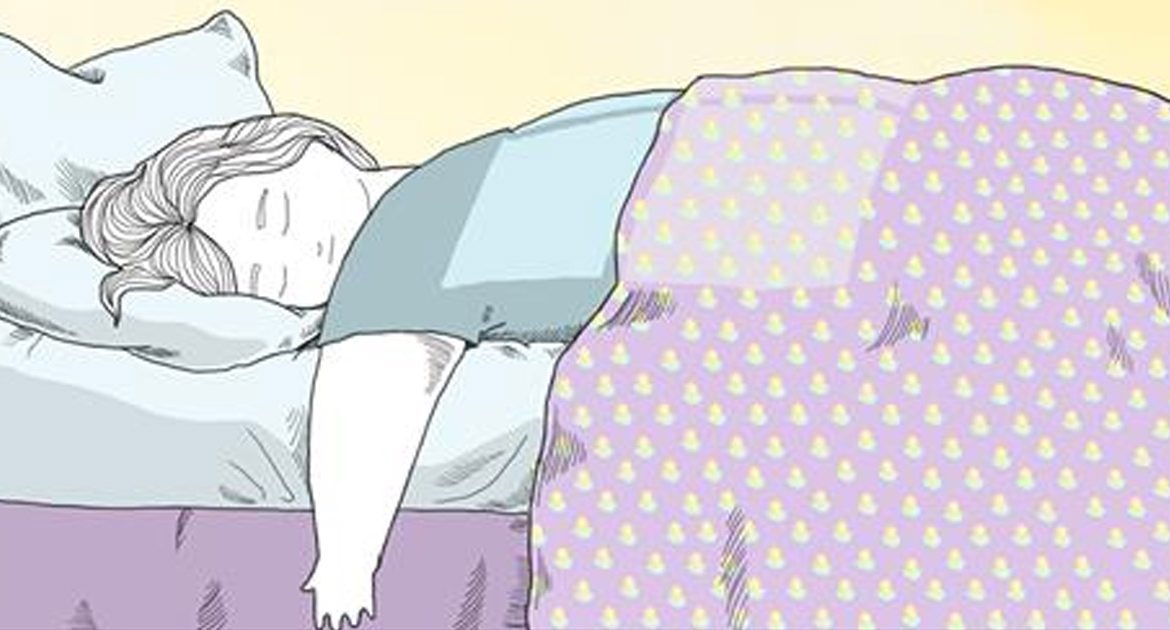o most of us, the idea of getting “too much sleep” sounds like a fantasy. Sleep is good for you; how could you possibly get too much?
Well, as it turns out, the amount of sleep you get is actually a perfect example of what can happen when you get too much of a good thing.
The same way it’s possible to drink too much water, or take too many vitamins, it’s possible to get more sleep than is healthy.
Now, we aren’t talking about hitting the snooze button on the occasional Saturday, but about chronic oversleeping that happens nearly every day.
Of course, sleep is a tricky topic. If you’re getting too much sleep, it can be a chicken-and-the-egg question: is too much sleep causing you to be unhealthy, or is your exhaustion a symptom of an underlying illness?
If you’re noticing that you’re suddenly tired all the time, it might be the latter.
However, if you’ve always slept a lot, it might be a sign that you’re a chronic “oversleeper,” and you’re doing harm to your health in the long run.
Scroll through below to learn more about what can happen when you get too much sleep.
Why Do We Need Sleep?

Think of sleep as a vital nutrient, like iron or vitamin D. You need a certain amount of it to keep your brain and body moving.
The actual science behind sleep is still not very well understood, but the basic idea is that it gives your body time to rest, and it gives your brain an opportunity to process through all of your day’s experiences.
While you’re dozing and dreaming, your brain has time to make connections and sort through what it should keep and what it should toss out. Short- and long-term memory depend on a good night’s sleep.
How Much Sleep Should You Get?

Every person requires a different amount of sleep, and it can change and grow depending on your age, your daily activities, your health, and your body chemistry.
For example, a teenager going through adolescence might need 10 hours a night, while a middle-aged adult might need just six hours.
In general, doctors agree that most people should get between seven and nine hours of sleep a night.
If you’re an adult and you regularly get 10 or more hours of sleep a night (and you aren’t pregnant or sick) you’re probably getting too much sleep.
What’s the problem with getting too much sleep?
In some cases, it can be a symptom of a sleep disorder called hypersomnia. No matter what, it can hurt your health in a lot of surprising ways.
Scroll through below to learn more.
What Are The Risks Of Getting Too Much Sleep?
Risk #1: Diabetes
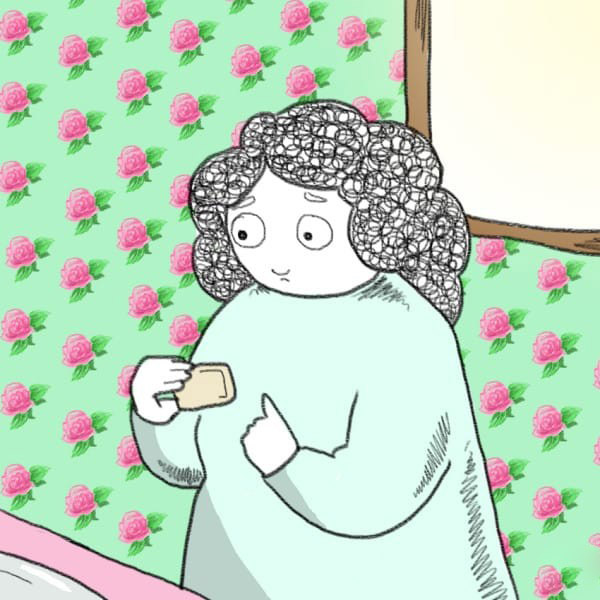
There is a well-established link between sleep and diabetes, and it shows up in all sorts of surprising ways.
Research indicates that both lack of sleep and oversleeping might usher your body into a prediabetic state, in which you are at a higher risk for developing full-blown diabetes.
The theory is that funky sleep patterns impact your body the same way insulin resistance does, and causes your body to have more trouble processing sugars.
Risk #2: Inflammation
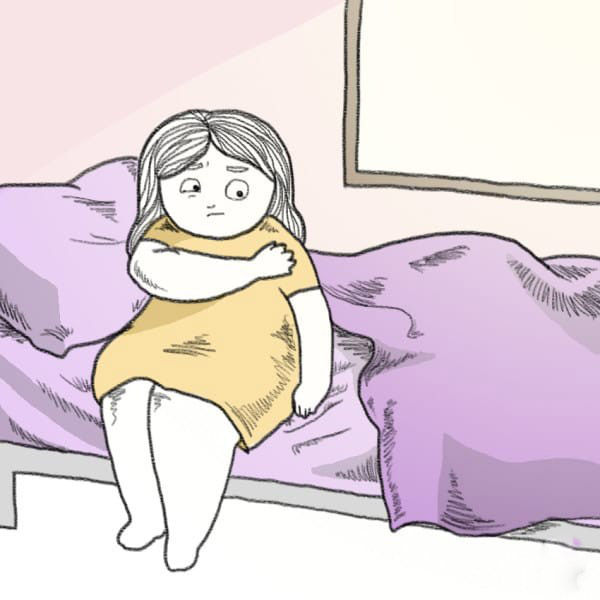
Sleeping too much can also trigger your body to produce extra cortisol.
In low doses, cortisol is an important part of your immune system, and can help lower inflammation.
However, cortisol tends to build up in the blood when the body is stressed or exhausted. Oversleeping triggers the body to produce extra cortisol.
In higher doses, cortisol stops being anti-inflammatory and actually has the opposite effect; you’re more likely to wake up feeling puffy-eyed and sore because of inflammation in your joints and sinuses.
Risk #3: Depression
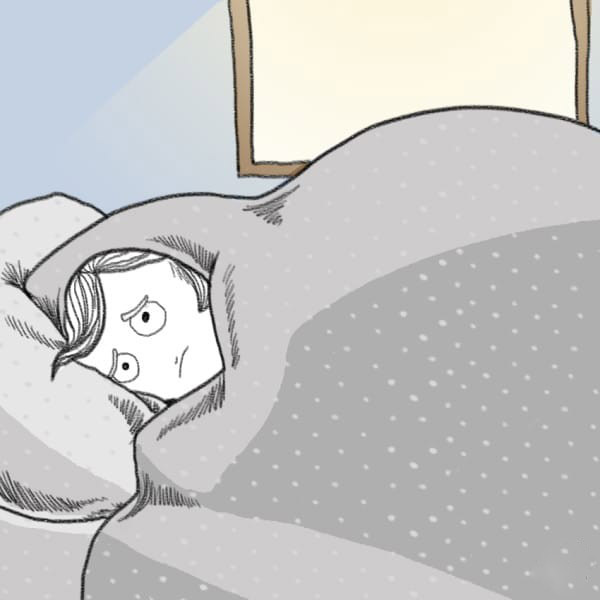
You probably know that sleeping all day is a symptom of depression, but you may not realize that, sometimes, oversleeping actually causes depression.
Depression and sleep are intimately entwined, and the relationship between the two may come back to that same chemical, cortisol.
Serotonin, the brain’s feel-good chemical, can get interrupted by a spike in cortisol levels, which might be triggered by oversleeping.
If your serotonin is consistently disrupted, it can set off a chemical chain of reactions that lead to depression.
Risk #4: Brain Fog
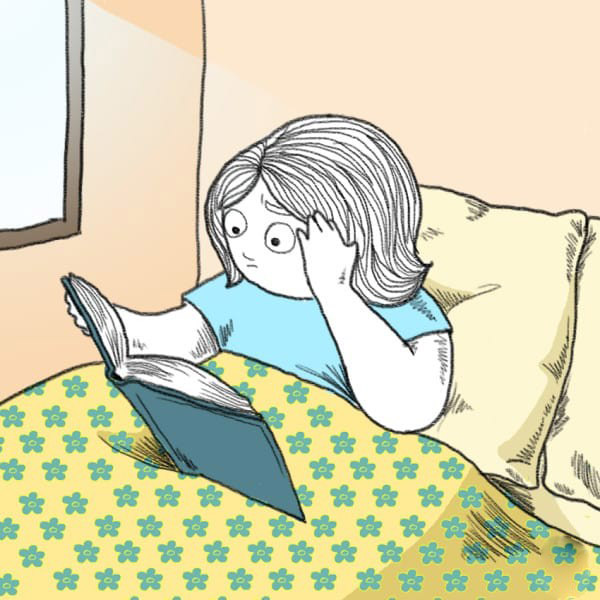
Have you ever slept in on a Saturday and then discovered that you actually felt extra sleepy all day, despite getting plenty of sleep?
This symptom isn’t just in your head. It might be linked to much more serious, and permanent, long-term conditions in the future.
A recent study found that people who regularly sleep nine or more hours have a heightened risk for developing dementia and Alzheimer’s earlier than their peers.
For the moment, it’s not clear why this is the case, but longer sleep patterns are definitely linked to more rapid mental deterioration.
Risk #5: Obesity
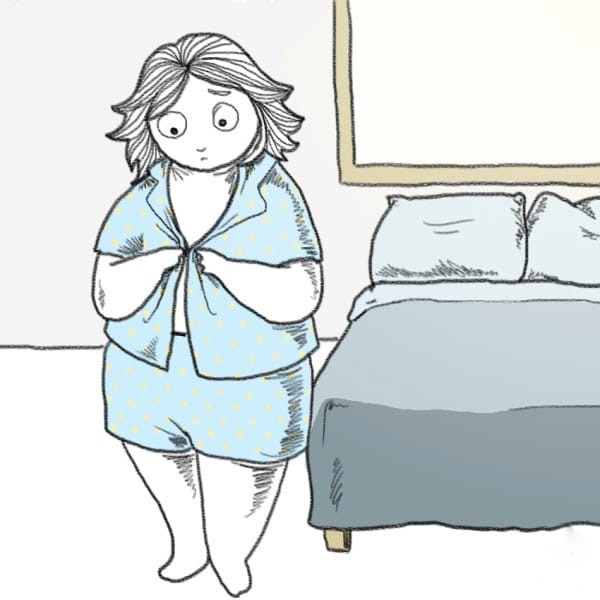
If you are sleeping more than 9 hours a night, there’s a good chance you are putting yourself at risk for developing obesity.
When you sleep too long, you disrupt your body’s natural circadian rhythm, which sets the tone for everything you do throughout the day.
Your appetite might be particularly affected, and the way you eat because of the disruption might lead to an unhealthy diet and unwanted weight gain.
Plus, that cortisol we mentioned earlier has yet another unpleasant side effect: it causes your body to hold onto excess fat instead of disposing of it.
Risk #6: Heart Disease

Sleeping at night gives your heart a chance to rest too; your heart rate slows down and the muscle doesn’t have to work as hard.
However, if you sleep too long, you might be damaging your heart because you aren’t exercising it enough.
Basically, you need to get your heart pumping after a certain number of hours, or you’re likely to have a higher risk of angina, chest pain caused by reduced blood flow.
It’s also important to note that other oversleeping side effects, like obesity, can increase your risk of congestive heart failure significantly.
Risk #7: Infertility
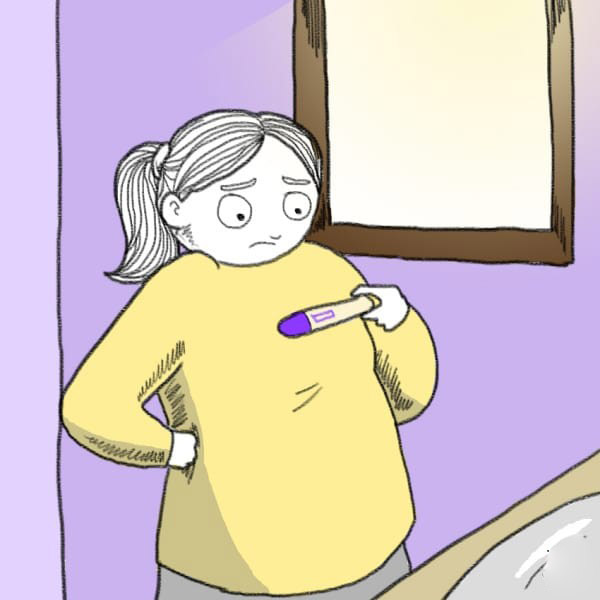
The amount of sleep you get at night might be directly linked to your fertility.
This is obviously less important for anyone past menopause, but younger women trying to conceive should try to get 7 to 8 hours of sleep a night.
One study of women getting IVF treatments indicated that women who get 7 to 8 hours are the most likely to conceive: 53% conceived, compared to just 43% of women who were “oversleepers.”
The theory behind this is that too much sleep interrupts your circadian rhythm. That, in turn, disrupts your monthly cycle, meaning that ovulation and periods become irregular and disrupted, and it’s harder to get pregnant.
Do you sleep too much? You may want to talk to your doctor about hypersomnia and other sleep disorders to get your body back on track.
Make sure to Liked Video this article and spread the word about the dangers of oversleeping!
